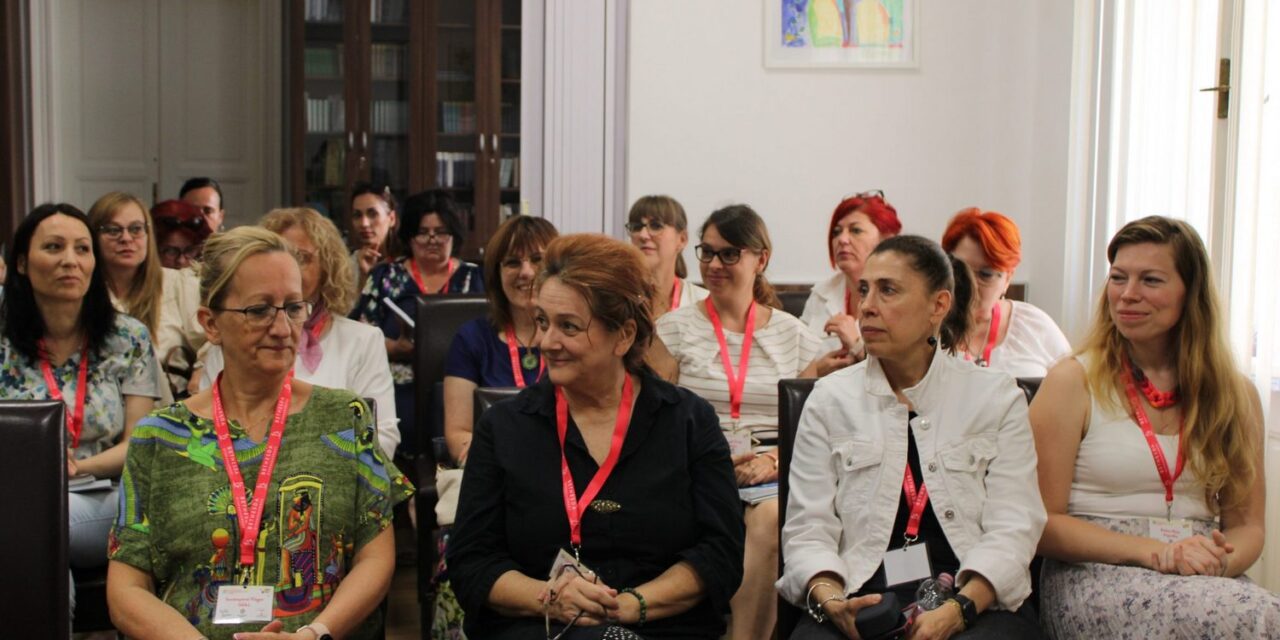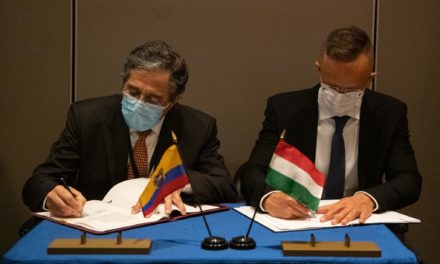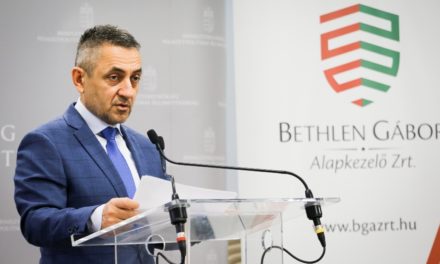The Training of Foreign Child Psychologists was organized for the first time in Felvidék by the State Secretariat for National Policy and the Association of Hungarian Teachers of Slovakia (SZMPSZ) on May 30 at the House of Hungarian Pedagogues in Felvidék in Komárom. The professional partner of the event is the Hungarian Reformed Church Bethesda Children's Hospital since 2017.
Mária Vörös, the vice-president of the SZMPSZ, said in her welcome speech that until now the trainings took place only in Budapest, with a limited number of people, but now that training has taken place outside, anyone can apply. He pointed out that unfortunately
Even today, very few people in Slovakia have access to appropriate therapy and development in their mother tongue.
He expressed his pleasure that they were able to call on many professionals. A total of 28 people applied for the training, 17 of them work as psychologists, a school psychologist and a child psychologist, 6 special education teachers, 1 mental health specialist, 1 behavior analyst and a teacher took part in the training.
He also drew attention to the fact that the National Association of Special Development Professions, established in accordance with the statutes of the SZMPSZ, has been operating for the sixth year now, as the national professional and interest representation organization of Hungarian professionals in Slovakia performing special development work. He asked those present that those who are not yet members should consider it, since the aim of the association is to unite, coordinate and represent the interests of this professional community.
Éva Czimbalmosné Molnár, Head of the Department Responsible for the Highlands of the State Secretariat for National Policy, said that since 2013, the Strategic Department of the State Secretariat for National Policy has been working on the expansion of the child health network and has been cooperating with the Society of Hungarian Pediatricians and the Bethesda Children's Hospital from the beginning.
He emphasized
from the point of view of the survival of Hungarian families and the Hungarian community, it is very important that the children receive health care available in the Hungarian language.
In connection with the training, he mentioned that the interested parties themselves took an active part in compiling it, as they used questionnaires to measure what they would need and what topics they were interested in. As he said, this is the first time that the training will take place in the region, and for the first time there was an opportunity for families affected by ADHD to participate.
He thanked the 3,600-member SZMPSZ for their work as organizers and for providing the venues for the program. The head of department emphasized that the 3,600-member SZMPSZ is an extremely reliable partner of the State Secretariat for National Policy.
During the day, the interested professionals could listen to two lectures by the staff of the Bethesda Children's Hospital, and then, in the most interactive part of the training, they participated in workshops on various topics.
Anikó Hirsch , chief physician of Bethesda's mental health department, Early traumas - attachment traumatization and neurodevelopment , in which she spoke in detail about how early traumas and attachment traumatization influence the occurrence of neurodevelopmental disorders, especially when combined with genetic basis. The child psychiatrist-psychotherapist pointed out that child psychology is also extremely important from the point of view of the prevention of psychiatric diseases in adults.
ADHD case coordinator Ildikó Sorompóné Fléger on attention deficit hyperactivity disorder (ADHD) titled Living with ADHD and letting it live, listing her own experiences and best practices. He said about the symptom clusters characteristic of the disease, hyperactivity is characteristic of these children, that they are unable to sit still, cannot concentrate for long periods of time, perform more complex tasks, and talk remarkably a lot and loudly. In his presentation, he explained, among other things, that a child living with ADHD cannot be expected not to have tantrums, since until the age of 12 he does not even have an insight into his own behavior and to what extent it affects his environment, he explained.
After the presentations, clinical psychologist Johanna Radnai Crisis and crisis intervention for the interested professionals, and they were also able to participate in the workshop entitled Family therapy by therapist Hajnalka Rácz, and Anikó Hirsch also held a case discussion for the professionals from the highlands. In the rest of the afternoon, Ildikó Sorompóné Fleger and Sándor Németh, pedagogue and family therapist assistant of the hospital's ADHD Center, dealt with the parent group established for families affected by ADHD at the Eötvös Utcai Elementary School.
Source: aelvidek.ma
Photo: Erika Szalai / felvidek.ma













